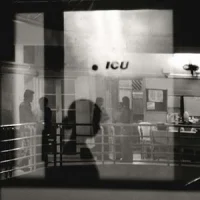The original Obamacare proposal sought to grant compensation for physicians for providing counselling to patients about living wills and end-of-life care options. The Affordable Care Act, which was enacted in 2010, however, includes no such compensation.
The issue has been resurrected when the Center for Medicare and Medicaid Services (CMS) announced on 7 July that it was considering compensating physicians for having end-of-life conversations with their patients beginning in 2016. CMS is the largest insurer of patients at the end of life, covering 80 percent of those who die every year.
Jessica Nutik Zitter, MD, MPH, an intensive care and palliative care specialist at Highland Hospital in Oakland, California, is among those advocating this kind of payment for doctors. She discusses the issue in the article "Helping Physicians to Do the Right Thing" published online in the Huffington Post.
"The CMS proposal is a no-brainer," she writes. "Six years too late in the making, this is a clear win-win for everybody in our society, patients especially."
In the current Fee-For-Service payment model of healthcare, she says, a physician's value is largely determined by their billings. In the standard billing form, a doctor checks off boxes for the treatments or services rendered. For example, there is a code for adjusting a breathing machine, and another for inserting a catheter into a radial artery.
"But there is no checkbox to demonstrate that I spent an hour, maybe two, talking to a devastated family about the grim prognosis of their unconscious loved one, and helping them decide whether or not we should insert that radial artery catheter, and continue using the breathing machine," Dr. Zitter notes.
She narrates her conversation with a lung cancer patient who had no idea that his life would end within the next several weeks. She told the patient, who already had lost so much weight that his skin was hanging off of his body, that the fast growing lung cancer was highly unlikely to respond to more chemotherapy. The news struck him like a brick. He spent the rest of their conversation with his eyes closed, responding with one-word answers, seemingly devastated.
"I feared that I had been too blunt, maybe dissolved all will to live,” Dr. Zitter says. “But the power of human resilience is awesome, and the next day, 20 family members flew up from San Diego at his request. With their input, he decided to refuse the highly invasive default treatments that comprise our standard attempt to prolong life.”
Last year, the Institute of Medicine released a report showing that few patients have the opportunity to make their wishes known at the end of life, with too many deaths involving painful and ultimately unhelpful treatments.
However, most physicians have not been trained to have end-of-life conversations with their patients, according to Dr. Zitter. "Adding this code to our billing sheet is likely to drive future investment, such as training and quality assessment, into this critical skill."
"It's not just about the money," she explains. "It is about the value society places on these interactions. If this time-intensive and emotionally unpredictable activity does not even merit a billing code, what message are we sending to physicians about how we want them to spend their time?"
Source: TheHuffingtonPost.com
Image credit: National Institutes of Health (NIH)
The issue has been resurrected when the Center for Medicare and Medicaid Services (CMS) announced on 7 July that it was considering compensating physicians for having end-of-life conversations with their patients beginning in 2016. CMS is the largest insurer of patients at the end of life, covering 80 percent of those who die every year.
Jessica Nutik Zitter, MD, MPH, an intensive care and palliative care specialist at Highland Hospital in Oakland, California, is among those advocating this kind of payment for doctors. She discusses the issue in the article "Helping Physicians to Do the Right Thing" published online in the Huffington Post.
"The CMS proposal is a no-brainer," she writes. "Six years too late in the making, this is a clear win-win for everybody in our society, patients especially."
In the current Fee-For-Service payment model of healthcare, she says, a physician's value is largely determined by their billings. In the standard billing form, a doctor checks off boxes for the treatments or services rendered. For example, there is a code for adjusting a breathing machine, and another for inserting a catheter into a radial artery.
"But there is no checkbox to demonstrate that I spent an hour, maybe two, talking to a devastated family about the grim prognosis of their unconscious loved one, and helping them decide whether or not we should insert that radial artery catheter, and continue using the breathing machine," Dr. Zitter notes.
She narrates her conversation with a lung cancer patient who had no idea that his life would end within the next several weeks. She told the patient, who already had lost so much weight that his skin was hanging off of his body, that the fast growing lung cancer was highly unlikely to respond to more chemotherapy. The news struck him like a brick. He spent the rest of their conversation with his eyes closed, responding with one-word answers, seemingly devastated.
"I feared that I had been too blunt, maybe dissolved all will to live,” Dr. Zitter says. “But the power of human resilience is awesome, and the next day, 20 family members flew up from San Diego at his request. With their input, he decided to refuse the highly invasive default treatments that comprise our standard attempt to prolong life.”
Last year, the Institute of Medicine released a report showing that few patients have the opportunity to make their wishes known at the end of life, with too many deaths involving painful and ultimately unhelpful treatments.
However, most physicians have not been trained to have end-of-life conversations with their patients, according to Dr. Zitter. "Adding this code to our billing sheet is likely to drive future investment, such as training and quality assessment, into this critical skill."
"It's not just about the money," she explains. "It is about the value society places on these interactions. If this time-intensive and emotionally unpredictable activity does not even merit a billing code, what message are we sending to physicians about how we want them to spend their time?"
Source: TheHuffingtonPost.com
Image credit: National Institutes of Health (NIH)
Latest Articles
healthmanagement, palliative care, critical care, end of line, chemotherapy, counselling
The Center for Medicare and Medicaid Services (CMS) announced on 7 July that it was considering compensating physicians for having end-of-life conversations with their patient beginning in 2016.










